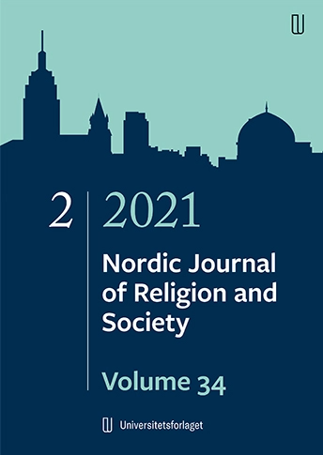
Studies of lived religion among Muslims in Europe increasingly analyse how Muslims’ everyday practices are informed by religious beliefs, norms and values. This includes studies about food preparation, hijab fashion and shopping. Yet, religious influence on the economic aspects of Muslims’ everyday lives remains largely unexplored.
In a new article published in the Nordic Journal of Religion and Society, Kaja Borchgrevink and Marta Bivand Erdal explore the meaning of Islamic finance among Muslims in the Nordic countries. The article's title summarizes a key dilemma: The Necessity of Taking a Loan, and the Necessity of Not Doing So: Islamic Finance among Muslim Minorities in Denmark and Norway. It draws on focus group discussions with Muslims in Denmark and Norway, the authors analyze how the research participants understand Islamic finance' and its consequences in everyday life.
Borchgrevink and Erdal find that the Islamic prohibition of 'riba' (translated as 'interest') matters, but in different ways. In both Norway and Denmark, where homeownership is the norm and the rental markets tight, the necessity to take a conventional interest-bearing mortgage to buy a home is set against the necessity not to, based on religious convictions. Research participants fall into two categories: those who obtain mortgages, and those who do not, either primarily or solely on religious grounds. For those who opt out of homeownership, a life of renting takes an immense financial toll and has a wider impact on stability. Not being a homeowner means a common investment opportunity is forgone and the chance to accumulate and pass on wealth to the next generation is negatively impacted.
The authors also finds that the lack of alternatives to conventional interest-bearing finance affects some Muslims' experiences of inclusion in Denmark and Norway, and that this is the case to a degree not only among those who, for religious reasons, see it as necessary not to take an interest-bearing loan, but also for some of those who have obtained an interest-bearing loan, but would have preferred not to do so.
The findings thus highlight how presumed universal approaches to welfare, work and economic inclusion in Norway and Denmark are in fact not value-free. Through a lived religion approach, it is possible to unpack sometimes subtle nuances through the prism not primarily of dogma, but rather of everyday economic priorities, choices and constraints.
Related outputs on Muslim women and homeownership can be found here.





